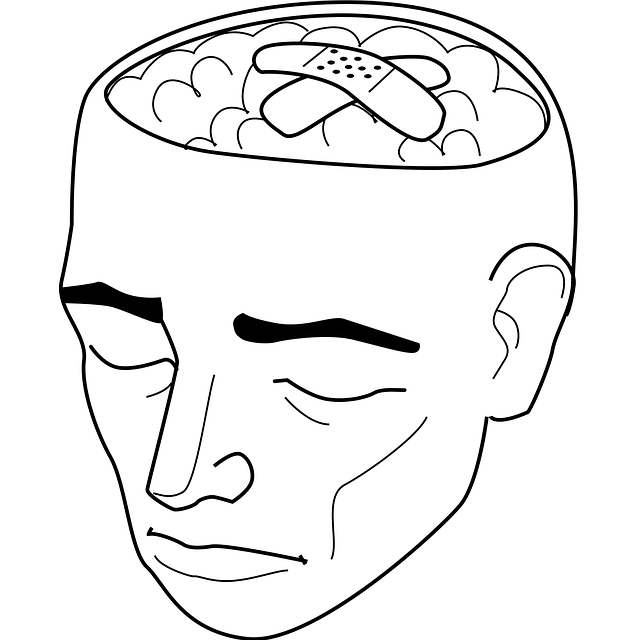Denver Womens Issues Therapy prioritizes cultural sensitivity as a cornerstone for effective treatment, catering to the diverse needs of women in the city. Mental healthcare professionals must be attuned to clients' unique ethnic backgrounds and communication styles, integrating this understanding into therapeutic techniques. By combining tailored communication strategies, empathy-building, and culturally sensitive education, therapists create safe spaces for emotional exploration, enhancing treatment outcomes and preventing burnout. This approach ensures equitable access to care, fostering trust and empowering women from all backgrounds. Continuous learning through workshops and courses focused on unconscious bias and cultural assessment tools is vital for maintaining a competent and inclusive practice.
Cultural sensitivity is a cornerstone of effective mental healthcare, especially when catering to diverse clienteles. This article explores strategies for culturally competent practice, drawing from the innovative Denver Women’s Issues Therapy (DWIT) approach that emphasizes embracing diversity and understanding cultural nuances. We delve into recognizing and respecting cultural differences in therapy sessions, building trust with diverse clients, and the ongoing education needed to adapt practices. By implementing these principles, mental health professionals can provide more inclusive and effective care.
- Understanding Cultural Sensitivity: A Cornerstone of Effective Therapy
- The Denver Women's Issues Therapy Approach: Embracing Diversity
- Recognizing and Respecting Cultural Differences in Therapy Sessions
- Building Trust and Rapport with Diverse Clients
- Continuous Education and Adaptation for Culturally Competent Practice
Understanding Cultural Sensitivity: A Cornerstone of Effective Therapy

Understanding Cultural Sensitivity is a cornerstone of effective therapy, especially when addressing women’s issues in Denver or any diverse community. Mental healthcare professionals must recognize that cultural background significantly influences an individual’s experiences and interactions with mental health services. This awareness allows for tailored interventions that consider unique perspectives, beliefs, and values, fostering a sense of safety and trust.
Incorporating cultural sensitivity involves ongoing education and self-reflection among therapists. It necessitates adapting assessment tools and therapeutic approaches to accurately capture and address the complex interplay between identity, experiences, and mental health. Such practices not only enhance the effectiveness of treatment but also promote better outcomes for clients from various cultural backgrounds, including anxiety relief and confidence boosting. This is particularly crucial in Denver Womens Issues Therapy, where culturally competent care can significantly impact a client’s journey towards healing and well-being.
The Denver Women's Issues Therapy Approach: Embracing Diversity

The Denver Women’s Issues Therapy Approach is a culturally sensitive therapy model that recognizes and values diversity among its clients. It emphasizes creating an inclusive space where women from various backgrounds can openly discuss their unique experiences, challenges, and strengths. This therapeutic framework understands that every woman has different needs when it comes to emotional regulation, which is a cornerstone of mental wellness. By embracing this diversity, therapists using the Denver Women’s Issues Therapy approach tailor their communication strategies to be more effective, fostering stronger connections with clients.
Moreover, they employ empathy building strategies that go beyond surface-level understanding. They aim to genuinely connect with clients on a deeper level, acknowledging the complex interplay of social, cultural, and personal factors that influence mental health. Through these methods, therapists create an environment where women feel validated, respected, and empowered to work through their issues. This approach not only enhances therapeutic outcomes but also ensures that every client receives care that is genuinely attuned to her individual needs.
Recognizing and Respecting Cultural Differences in Therapy Sessions

In therapy sessions, recognizing and respecting cultural differences is paramount, especially in a diverse city like Denver, known for its vibrant mix of communities. Each individual brings their unique cultural background, experiences, and beliefs into the therapeutic space. For instance, a client from a specific ethnic group might have different expressions of emotions or communication styles compared to someone from another cultural origin. Therapists in Denver Womens Issues Therapy must be adept at navigating these nuances, ensuring that every patient feels heard and understood without judgment. This sensitivity fosters a safe environment, encouraging clients to explore their thoughts and feelings openly.
Cultural competency goes beyond mere awareness; it involves integrating this understanding into therapy techniques. Adapting therapeutic approaches to align with the client’s cultural framework can significantly enhance treatment outcomes. For example, incorporating elements from Mind Over Matter principles, as many cultural practices do, can offer alternative ways to process trauma or stress. Additionally, mental health education programs designed with a focus on cultural sensitivity can equip healthcare providers with burnout prevention strategies, ensuring they remain attuned to their clients’ diverse needs and maintain a high level of care in the face of Denver’s diverse population.
Building Trust and Rapport with Diverse Clients

Building trust and rapport with diverse clients is a cornerstone of effective mental healthcare practice, especially in Denver where women from various backgrounds seek therapy for their unique issues. Understanding cultural nuances is pivotal to creating an inclusive environment that fosters open communication. Therapists must be attentive to non-verbal cues, aware of unconscious biases, and respectful of differing beliefs and values. By adopting an approach that validates each client’s experiences, therapists can establish a strong therapeutic bond.
This connection is crucial for addressing challenges such as burnout prevention among professionals working with diverse populations. Promoting positive thinking and encouraging clients to share their stories without judgment paves the way for personalized treatment plans. Moreover, advocates of mental health policy analysis and advocacy highlight the importance of culturally sensitive practices in ensuring equitable access to care, ultimately benefiting Denver women seeking therapy for their specific needs.
Continuous Education and Adaptation for Culturally Competent Practice

In the ever-evolving landscape of mental healthcare, cultural sensitivity is no longer a nice-to-have but an indispensable skill for practitioners, especially those offering Denver Women’s Issues Therapy. Continuous education and adaptation are vital to ensure therapists stay abreast of diverse cultural norms, beliefs, and values. This ongoing learning allows them to provide more personalized, effective care that considers the unique backgrounds and experiences of their clients. By embracing culturally competent practice, therapists can foster better communication strategies, enhance emotional regulation techniques, and even contribute to depression prevention efforts tailored to each individual’s cultural context.
Staying current involves attending workshops, seminars, and online courses focused on topics such as unconscious bias, microaggressions, and cultural assessment tools. These educational initiatives empower therapists to navigate complex interactions with empathy and respect, ultimately improving patient outcomes. Adaptability is key; therapists must be flexible in their approach, recognizing that one-size-fits-all strategies may not resonate across diverse cultural boundaries. Through continuous education and a commitment to adaptation, Denver Women’s Issues Therapy practitioners can create safer, more inclusive spaces where women from all backgrounds feel seen, heard, and supported on their journey towards mental well-being.
Cultural sensitivity in mental healthcare is no longer a consideration—it’s an imperative. As diverse communities seek support, practitioners must embrace approaches like the Denver Women’s Issues Therapy model, which prioritizes understanding and respecting cultural differences. By recognizing and adapting to these nuances, therapists can build trust with clients from various backgrounds, ensuring effective and culturally competent care that enhances, rather than hinders, healing. Continuous education is key to navigating this crucial aspect of modern therapy.














